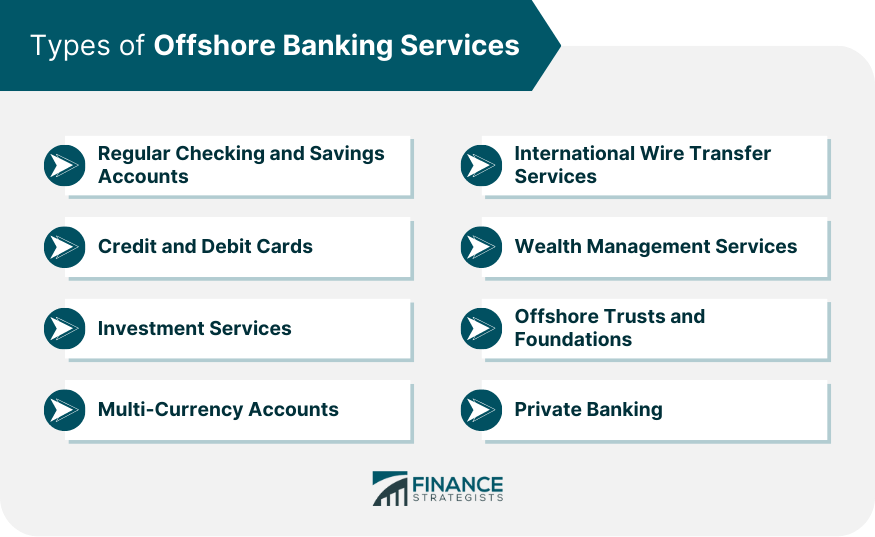Understanding the Legal Effects of Offshore Business Development

Lawful Structure for Offshore Companies
When establishing an overseas firm, recognizing the legal framework regulating its development and procedure is essential for compliance and danger monitoring. Offshore firms operate under specific legislations and guidelines that vary from those of onshore entities. The lawful structure for overseas companies generally includes arrangements for business enrollment, investor requirements, supervisor duties, and tax obligation commitments.
Company registration involves submitting the necessary documentation to the appropriate regulatory authorities in the chosen jurisdiction. This procedure frequently calls for comprehensive info regarding the business's structure, shareholders, and intended tasks. In addition, overseas business need to abide by particular shareholder requirements, such as maintaining a register of investors and maintaining this info as much as date.
Directors of overseas companies have fiduciary tasks to act in the best rate of interests of the company and its shareholders. By sticking to the legal structure governing offshore firms, businesses can run with self-confidence while reducing lawful risks.


Tax Obligation Effects and Laws
When considering the facility and operation of an overseas business,Understanding the tax obligation ramifications and policies is paramount. Tax obligations play an important role in the decision-making procedure of whether to establish an offshore entity. Offshore firms are commonly subject to desirable tax regimes, supplying decreased or zero tax prices on foreign-earned earnings. It is important to browse these tax benefits meticulously to guarantee conformity with both the laws of the overseas territory and the home country.
Tax regulations for overseas business differ dramatically throughout jurisdictions, and it is important to seek expert suggestions to recognize the certain requirements and obligations. Detailed understanding of tax regulations and laws, as well as appropriate tax preparation, are vital to guarantee the compliant and effective operation of an overseas company.
Conformity Demands and Reporting
Ensuring compliance with governing requirements and maintaining precise coverage are essential elements of handling an overseas firm efficiently and transparently. Offshore business need to stick to the laws and regulations of both the jurisdiction in which they are integrated and any kind of more information various other relevant jurisdictions where they conduct company.
In enhancement to governing conformity, overseas companies are usually subject to reporting requirements to guarantee transparency and stop prohibited tasks such as cash laundering or tax obligation evasion. Coverage commitments may entail disclosing details about the business's possession structure, monetary tasks, and recipients. This info might require to be shown to regulatory bodies, tax authorities, or various other governmental companies, depending on the jurisdiction.
Keeping precise and complete documents is important for showing compliance and reacting to any inquiries or audits effectively. Offshore companies should carry out durable coverage systems and internal controls to make sure that they meet all legal needs and operate with stability.
Property Defense and Privacy Regulations
In the realm of overseas firm development, a critical factor to consider is the interplay click for info between property protection strategies and privacy legislations. Offshore jurisdictions commonly use improved possession protection systems that shield assets from prospective risks this such as suits, lenders, or political instability in the home nation. By structuring properties within an overseas company, individuals can safeguard their wide range and diversify their holdings across different lawful structures. Personal privacy laws in overseas jurisdictions contribute to preserving discretion and anonymity for business proprietors. These legislations restrict the disclosure of sensitive information, making it challenging for external events to access information concerning the firm's procedures or possession framework. This level of privacy can be helpful for people looking for to shield their possessions from public analysis or rivals. It is important for people to navigate these laws ethically and transparently, making sure conformity with both offshore regulations and the legal requirements of their home country. Ultimately, understanding the detailed connection in between property defense techniques and privacy laws is paramount when considering overseas company development.
Difficulties and risks to Think about
When venturing into offshore firm development, prudent factor to consider of potential threats and challenges is necessary for educated decision-making and tactical planning. Furthermore, political instability or adjustments in offshore jurisdictions can posture a threat to the continuity of operations and the security of possessions held by the offshore business.
Difficulties may likewise occur worrying the complexity of offshore firm structures and the demand for expert legal and financial suggestions to browse the complex governing frameworks of different territories (offshore company formation). Keeping conformity with varying international legislations and laws, along with potential language barriers and cultural differences, can additionally make complex the overseas firm formation process. It is important to be knowledgeable about these threats and obstacles prior to continuing with overseas company formation to mitigate potential mistakes and ensure a smooth and legally sound establishment
Verdict
To conclude, overseas business formation involves browsing intricate lawful frameworks, tax effects, conformity demands, and privacy laws. Recognizing these elements is important for reducing obstacles and dangers related to overseas service operations. It is important for people and companies considering offshore company development to seek specialist support to guarantee conformity with policies and to protect their properties efficiently.
The lawful framework for overseas business typically consists of arrangements for firm registration, shareholder needs, director responsibilities, and tax obligation obligations.
Supervisors of offshore business have fiduciary duties to act in the finest interests of the business and its investors. By adhering to the lawful structure regulating overseas companies, services can operate with confidence while decreasing legal dangers.
In addition, political instability or changes in overseas territories can position a danger to the connection of operations and the security of properties held by the offshore business. - offshore company formation
In verdict, offshore business development entails navigating complicated lawful structures, tax obligation implications, compliance demands, and personal privacy laws.